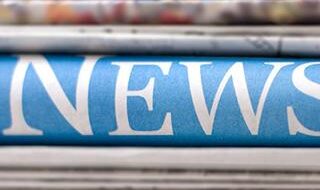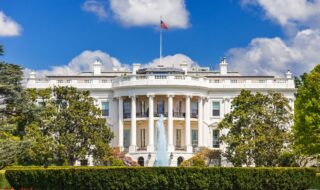January 28, 2023
Right-to-Repair Bills Introduced in House and Senate
State Director Patrick Connor reports from Olympia on the small-business agenda for the legislative and political week ending January 27
Small Business Day
Due to numerous legislative conflicts, NFIB is rescheduling Small Business Day at the Capital to Thursday, March 16. Click here for additional information or to register.The Legislature
Some progress was made this week on bills where NFIB has been involved in negotiations:- HB 1136 – Employee expense reimbursements. NFIB and the Washington Employment Lawyers Association agreed on specific bill language making these claims subject to the wage payment act’s claims resolution process, giving L&I authority for necessary rulemaking, and removing WELA’s proposed new private right of action. The bill was scheduled for executive action Friday, January 27, allowing votes on the bill and amendments; however, the bill was unexpectedly pulled from consideration without notice.
- HB 1392, SB 5464 – Right to Repair consumer electronic devices. Rep. Mia Gregerson’s updated legislative proposal was introduced this week, along with a companion version in the Senate. The bills are scheduled for hearing in House and Senate committees next week. NFIB supports the bills.
Labor
- HB 1217 – Wage complaints. NFIB testified Friday (January 27) as opposed to a bill that would add a new 12% interest penalty to employers accused of wage violations. L&I would be prohibited from reducing or waiving the interest charge, a tactic often used to encourage employers to promptly correct and pay any wage errors, unless approved by the worker. The bill lacks any safe harbor for employers who identify and self-report any wage payment errors. It would also create an imbalanced workgroup composed of a union representative, trial lawyer, academic with expertise in labor issues, and just one employer representative, facilitated by L&I. This workgroup would have about five months to research wage payment laws and processes in all 50 states plus the District of Columbia, recommend statutory and/or regulatory changes, and must consider whether and how to implement a new wage replacement fund. The process is designed to fail – unless proponents already have a new, undisclosed proposal they intend to fast-track through the workgroup.
- SB 5109 – Providing wage replacement benefits for unemployed undocumented workers. NFIB also signed in opposed to the Senate version of a bill to create a new unemployment-insurance (UI) style benefit program for undocumented workers who are ineligible for UI under federal law. As previously reported, the bill threatens to put employers in violation of federal law.
- SB 5217 – Ergonomics. NFIB signed in opposed to this latest bill seeking to grant the Department of Labor & Industries (L&I) rulemaking authority over workplace repetitive motion activities that may lead to musculoskeletal injuries or disorders. While the bill is much more limited than last year’s House Bill, NFIB does not support overturning I-841 that barred L&I from regulating these activities.
- SB 5310 – Allowing psychologists to be attending providers for workers compensation PTSD claims. We also signed in opposed to this bill, the companion to HB 1197, which we’ve reported on previously.
Margins Tax
- SB 5482 – Margins Tax. NFIB testified “other” on this proposal to replace the nearly 90-year-old, Depression-era “temporary” B&O tax on businesses’ gross receipts. As is our process, NFIB will be deploying a special ballot detailing the proposal, so members have an opportunity to determine our position on this legislation. We hope to have the special ballot available to members next week. The Tax Structure Workgroup explains the bill here and has a tax calculator where business owners can compare their current B&O tax liability with what is likely to be their new obligation under a margins tax. Some highlights of the proposal include:
— Tax return filing is only required for firms with more than $500,000 in annual gross receipts
— Tax returns will be due April 15 each year, although some businesses will be required to make quarterly estimated tax payments
— The tax will apply to firms earning more than $1 million in gross receipts
— Businesses will be able to reduce their taxable gross income by choosing among
— The $1 million exemption
— A 30% deduction
— Deducting the cost of goods sold
— Deduction compensation costs
— Alternatively, firms earning less than $5 million gross can elect the “EZ Pay” process, which would have them pay a tax rate of 1.75% without deductions
— Since the plan is to be revenue neutral, the estimated initial tax rate when the bill becomes effective is about 3.2%.
Past Weekly Reports and Related Information
- January 20—NFIB, Trial Bar Negotiating Workplace Fairness Bill
- January 13—Washington State Legislature Begins 2023 Session
- January 7—Small Business Day in Olympia, March 16
 Photo snip courtesy of the Legislative Support Services website
Photo snip courtesy of the Legislative Support Services website
NFIB is a member-driven organization advocating on behalf of small and independent businesses nationwide.
Related Articles














